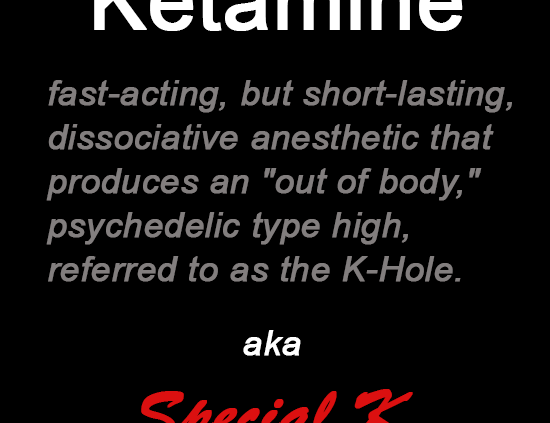Ketamine for Anxiety Reviews: Top 5 Surprising Outcomes
Ketamine for anxiety reviews offer a range of mixed opinions, reflecting both hopes and hesitations surrounding this unconventional treatment option. If you’ve been battling anxiety without success using traditional therapies, you might be considering ketamine as a possible alternative. Here’s a snapshot of what you can expect based on user experiences and scientific studies:
- Quick Relief: Many users report feeling calmer almost immediately after treatment, noting improvements within hours that can last days.
- Treatment-Resistant Anxiety: For those who haven’t found relief with SSRIs or SNRIs, ketamine might help where other drugs have failed.
- Side Effects: Commonly include temporary dissociation and changes in blood pressure, usually short-lived.
- Varied Outcomes: While some find profound relief, others experience little change, illustrating a mixed bag of reviews.
Ketamine’s role in managing anxiety is a topic of growing interest and debate. Research highlights its potential as a rapidly acting solution, especially appealing to those in dire need of immediate relief. However, personal experiences with ketamine vary considerably, with some users praising its effectiveness and others questioning its lasting impact.

Understanding Ketamine
Ketamine is not just a party drug or an anesthetic—it’s also being explored as a treatment for mental health issues like depression and anxiety. Its unique mechanism sets it apart from traditional medications.
Depression and NMDA Receptors
Ketamine works differently from typical antidepressants. Most antidepressants target serotonin, but ketamine focuses on NMDA receptors, which are part of the glutamate system. This is important because glutamate is the most abundant neurotransmitter in the brain and plays a key role in mood regulation.
When ketamine blocks these NMDA receptors, it can lead to a cascade of events that help improve mood. This action is thought to be responsible for the rapid antidepressant effects that some patients experience, sometimes within hours of treatment.
Neurogenesis: Building New Connections
One of the exciting aspects of ketamine is its potential to promote neurogenesis, which is the growth of new neurons and synapses. This can help repair some of the brain changes seen in depression. When synapses are restored, communication between neurons improves, potentially leading to better mood and cognitive function.
Research suggests that ketamine might help create an ideal environment for new neural pathways to form. These pathways are crucial because they help the brain adapt and respond to new experiences, which is particularly beneficial in overcoming depression and anxiety.

In summary, ketamine’s ability to impact NMDA receptors and promote neurogenesis makes it a promising candidate for treating depression and anxiety. However, its effects can vary widely among individuals, which is why ongoing research and reviews are essential to understand its full potential and limitations.
Ketamine for Anxiety Reviews
When it comes to ketamine for anxiety reviews, opinions are as varied as the experiences themselves. Let’s explore what people are saying about this unconventional treatment.
Positive Experiences
Many users report that ketamine has been a game-changer for their anxiety. These individuals often highlight the rapid relief they experience, sometimes noting improvements within hours. For those who have struggled with treatment-resistant anxiety, ketamine can feel like a breakthrough. It’s not uncommon to hear stories of people who, after trying numerous traditional medications with little success, finally find relief with ketamine.
Kaia Roman, a contributor to MindBodyGreen, shared her personal experience with ketamine, describing newfound levels of clarity, energy, and inner calm after treatment. She noted that the benefits seemed to increase over time, suggesting a lasting effect that goes beyond the immediate relief.
Negative Experiences
However, not everyone has a positive experience with ketamine. Some users report side effects that can be off-putting, such as dizziness, nausea, and headaches. These side effects often peak shortly after treatment and tend to subside within an hour, but they can still be a barrier for some people.
Moreover, the dissociative effects of ketamine, while therapeutic for some, can be unsettling for others. Feelings of detachment or a “dreamlike state” are common, and not everyone finds this pleasant or helpful.
Mixed Outcomes
For many, the results of ketamine therapy are mixed. Some individuals experience significant relief initially, but these effects may diminish over time. This variability is a crucial point in ketamine for anxiety reviews. While some studies suggest that the benefits can last for days or even weeks, others find that the relief is more fleeting.
In clinical settings, the effectiveness of ketamine can depend on various factors, including the dosage, method of administration, and individual patient differences. Researchers emphasize the importance of ongoing professional support during treatment to help steer these new mental landscapes.

In summary, while ketamine offers hope for many dealing with anxiety, it’s not a one-size-fits-all solution. The reviews reflect a spectrum of experiences, underscoring the need for personalized treatment plans and further research to optimize outcomes.
In the next section, we’ll explore how ketamine works for anxiety, delving into its effects on the brain and its potential to reshape neural pathways.
How Ketamine Works for Anxiety
Ketamine’s role in treating anxiety is fascinating and involves several key processes in the brain.
Dissociation
One of the most intriguing effects of ketamine is dissociation. This means it can create a feeling of detachment from reality or a “dreamlike state.” For some people, this helps break the cycle of anxious thoughts, providing a mental break and a chance to see things from a new perspective. While this can be therapeutic, it’s not always pleasant for everyone, highlighting the importance of professional guidance during treatment.
Neural Pathways
Ketamine is known to promote the growth of new neural pathways. This is crucial for people with anxiety, as it may help form healthier thought patterns. Ketamine works by blocking NMDA receptors, which can lead to increased neurogenesis—the creation of new neurons and synapses. This process can help the brain rewire itself, potentially reducing anxiety symptoms by creating more adaptable and resilient mental frameworks.
Dopamine Production
Another important aspect of ketamine’s action is its effect on dopamine production. Dopamine is a neurotransmitter linked to feelings of pleasure and reward. In some cases of anxiety, dopamine production can be disrupted, leading to a lack of motivation and enjoyment. Ketamine has been shown to act like a “light switch,” turning dopamine production back on almost instantly by blocking certain stress-related brain activities. This can lead to a quick improvement in mood and energy levels, offering relief from anxiety symptoms.
These mechanisms—dissociation, neural pathway formation, and dopamine regulation—highlight why ketamine can be effective for anxiety. However, these effects can vary widely among individuals, emphasizing the need for custom treatment plans and professional oversight.
In the next section, we’ll examine the benefits and risks of ketamine therapy, focusing on its rapid relief capabilities












